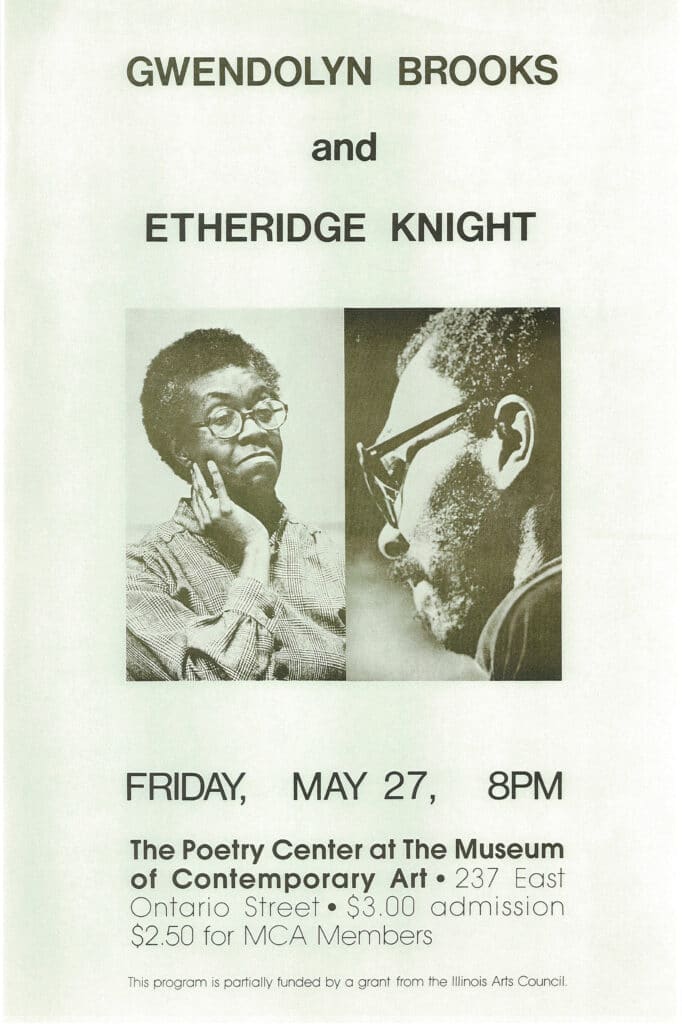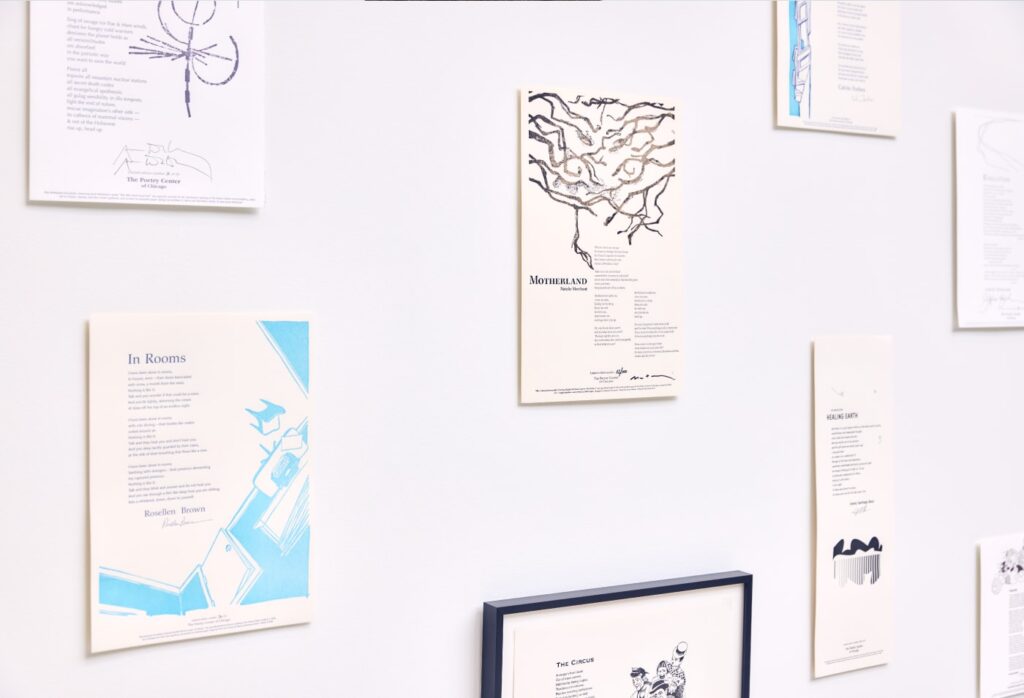Since 1974, the Chicago Poetry Center has been a home for poetry in the city and beyond. We connect people to poetry—on the page, on the stage, and in classrooms—through performances, public events, and educational programs that inspire, challenge, and uplift. Whether you’re a student, poet, or simply poetry-curious, there’s a place for you here.
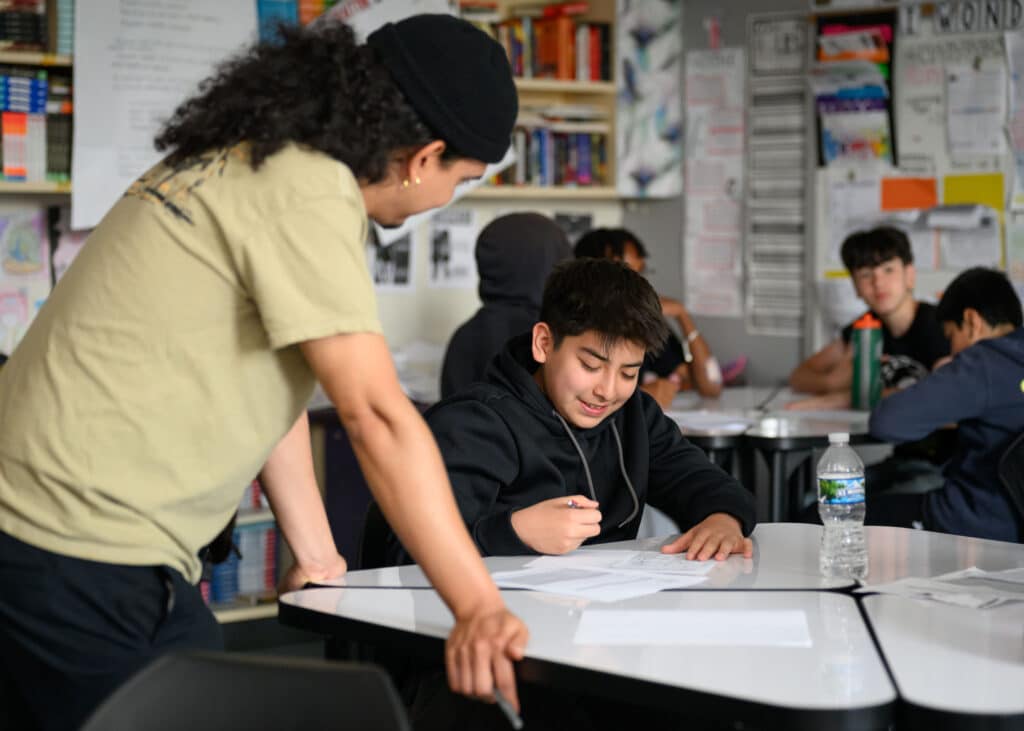
School Poetry Programs
Helping students discover their voices through school residencies, poetry workshops, assemblies, and video lessons.
Student Poetry
A seam of light, briefly
of the moon knowing what it knows
you emerge from, changed
days and days and days
through the window, spring
LitLife
Workshop, Reading
Blue Hour
A free monthly in-person reading series and generative writing workshop at Haymarket House.
Watch
Get Involved
We can’t do it without you!
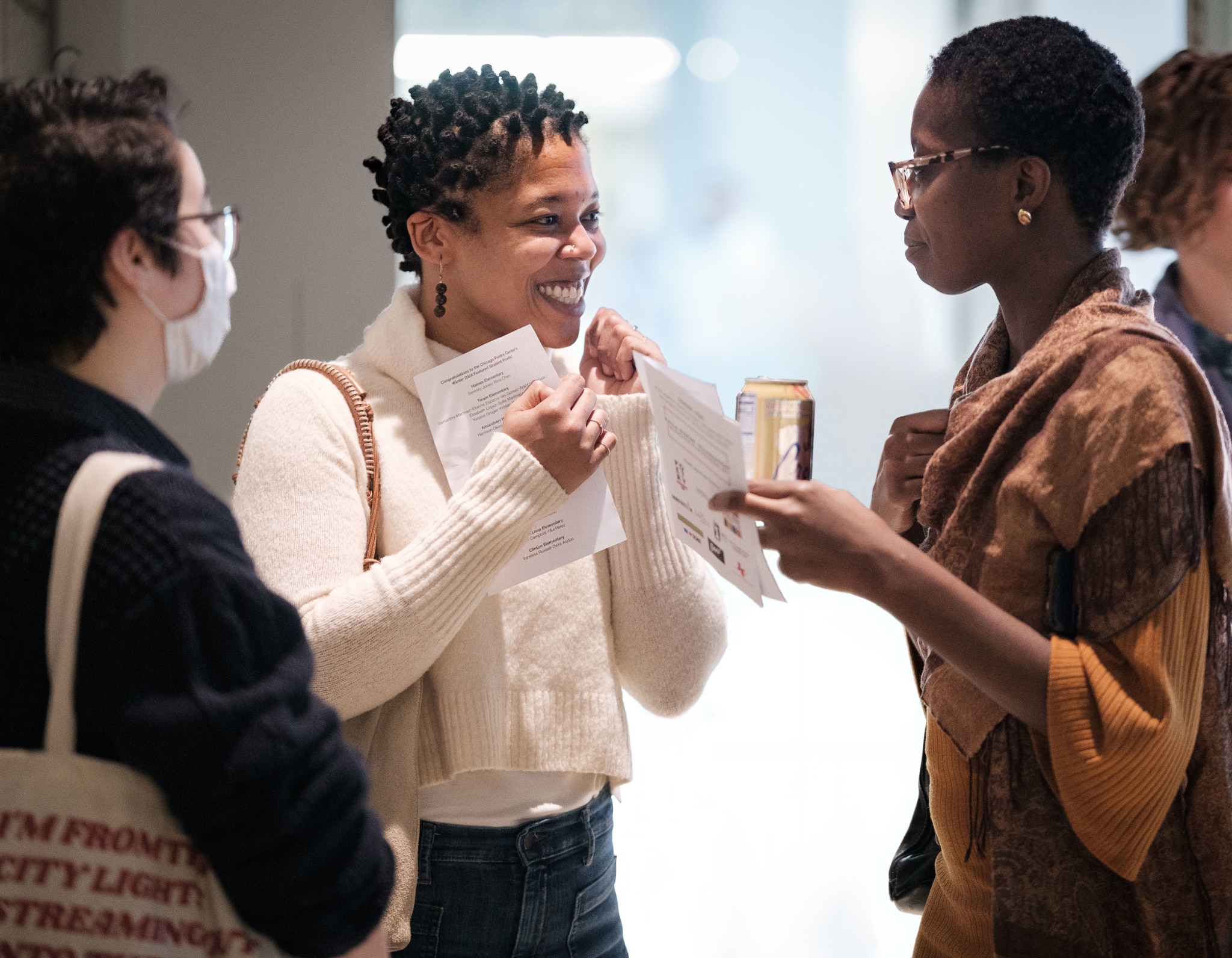
A Bigger Table
For 50 years, CPC has remained rooted in our history of liberatory artistic practice. Our programs have supported tens of thousands of Chicago Public School students in exploring their powerful voices, offered platforms for nearly a thousand poets to express themselves in writing and in spoken word, and engaged individuals nationwide in critical conversations around race using poetry as a springboard for transformative dialogue.
From the Archive
